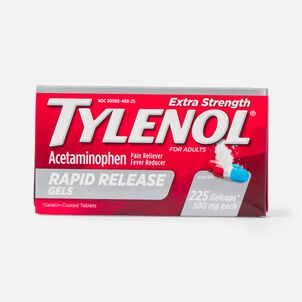2020 was a year of change for flexible spending accounts (FSAs). Through the CARES Act, two new product categories were opened to consumer spending account eligibility, menstrual care products and over-the-counter medications. Meanwhile, the IRS made the unprecedented decision to allow mid-year FSA changes in 2020 in light of the public health crisis.
With the signing of the Consolidated Appropriations Act 2021 on December 27, 2020, a series of additional temporary FSA changes were enacted that could potentially change how FSA users manage their accounts in the near future. But the key trendline that goes through all of them is that they are left up to the employer to implement. So while some FSA users may experience no changes in their deadlines, some may see major alterations in the coming months.
To help us make sense of all these new regulations, we've enlisted the help of our VP of Compliance, Rachel Rouleau, to guide us through the biggest provisions of this legislation.

Q: Thanks so much for joining us Rachel! We'll go through each of these major provisions here for our audience, but the biggest change seems to affect FSA Carryovers:
"A permissible carryover of up to all unused FSA funds, if allowed by the employer, for 2020 to 2021 and for 2021 to 2022 plan years." What does that mean?
Rachel: Every FSA works on a plan-year basis, with many unspent funds left at the end of each plan year being forfeited to the "use-it-or-lose-it" rule. Employers do have the option of providing employees with one of two (or neither) options to extend the FSA deadline: an up to $550 carryover or a 2.5 month grace period. The carryover allows account holders to carry up to $550 of their remaining dollars into the next FSA plan year. The grace period gives FSA holders up to 2.5 months after their plan year deadline to spend their remaining funds.
The newest change to come from this legislation would allow FSA users to carry over all of their unused dollars into next year's plan-year contribution, rather than the $550 previously allowed. This is available only if their employer allows it. This applies to the 2020 and 2021 plan years only and would require employers to make an amendment to their FSA plans.
Q: This new law also potentially affects the other type of FSA deadline extension: the 2.5 month grace period. What potential changes are coming here?
Rachel: Right! So, the second big, temporary change affects the FSA grace period. For many people who have FSA plan years that end on 12/31 of each year, the FSA grace period gives them until March 15 to spend their remaining FSA dollars. However, this new legislation gives employers the option to extend this grace period for up to 12 months (in the above example from March 15 to December 31). It's important to note that this temporary change is only for plan years ending in 2020 or 2021, after which the grace period will revert back to being limited to up to 2.5 months.
Q: Another change to come from the Consolidated Appropriations Act 2021 refers to employers choosing to temporarily extend use of the FSA for terminated employees through the end of the 2020 and 2021 plan year? What does that mean for FSA users who may experience job loss?
Rachel: Traditionally, when an employee goes through a job transition, he or she would only have access to remaining FSA dollars if they are eligible for, and elect, COBRA continuation coverage.
In an uncertain economic environment, this is a major change that could provide relief for those who are experiencing job loss due to layoffs and budget cuts. As with the other changes, these changes are also temporary, applying only to FSA plan years ending in 2020 and 2021, and up to the discretion of the employer to offer.
Q: The IRS opened up mid-year FSA changes in 2020 to allow FSA users to add/withdraw funds, enroll in an FSA or disenroll. Will the Consolidated Appropriations Act 2021 allow for this same practice in 2021?
Rachel: Yes! Employers can allow FSA users to make a one-time change to their contributions for the FSA plan year ending in 2021, as long as employers make applicable plan amendments before the end of the 2021 plan year. While this is similar to the FSA mid-year changes allowed by the IRS in 2020, that guidance came in the middle of the plan year and only about 30 percent of U.S. employers opted to make these changes (Mercer). We may or may not see more employers allowing for these changes in 2021 now that they have extra time, but it does require employers to amend their FSA plans to do so.
Q: So it sounds like these changes could affect millions of FSA users, while others may not see any changes in their plan or plan year structure. What should FSA users keep in mind as we navigate these changes in 2021?
Rachel: I think the most important thing to keep in mind is something employees should always be aware of, but perhaps with these changes even more so: FSA plans are offered and owned by an employer, and there are a lot of variations in plan options. The best thing an FSA participant can do for themselves in terms of their FSA success is to learn their plan options, guidelines and deadline availability. Oftentimes this information is available to employees through their Summary Plan Description, a document made available by an FSA plan administrator or HR department. FSA holders who take the time to understand what their FSA benefit is, how it can be used and when it will expire will be best prepared to make the most of this important benefit year-round.
Q: Thanks, Rachel! The story of FSAs in 2021 is still unfolding and it will be interesting to see how many employers embrace these changes and how FSA users will navigate them to benefit their finances and long-term health.
Rachel: And there's still a lot of work to be done! Health-E Commerce previously created a petition to drive support for much-needed eligibility of PPE under IRS rules, and we also launched an advocacy site called TaxFreeBetter.com. This site will help push for continued expansion of FSAs and HSAs in areas such as broadened eligibility for health products and services like vitamin supplements, insect repellent, fitness equipment and more. We encourage FSA users to get involved and make their voices heard so more pro-FSA changes can become a reality.
Thanks for visiting the FSA Learning Center! To stay on top of all FSA news that can affect your health and financial wellness, be sure to follow us on Facebook and Twitter.
















